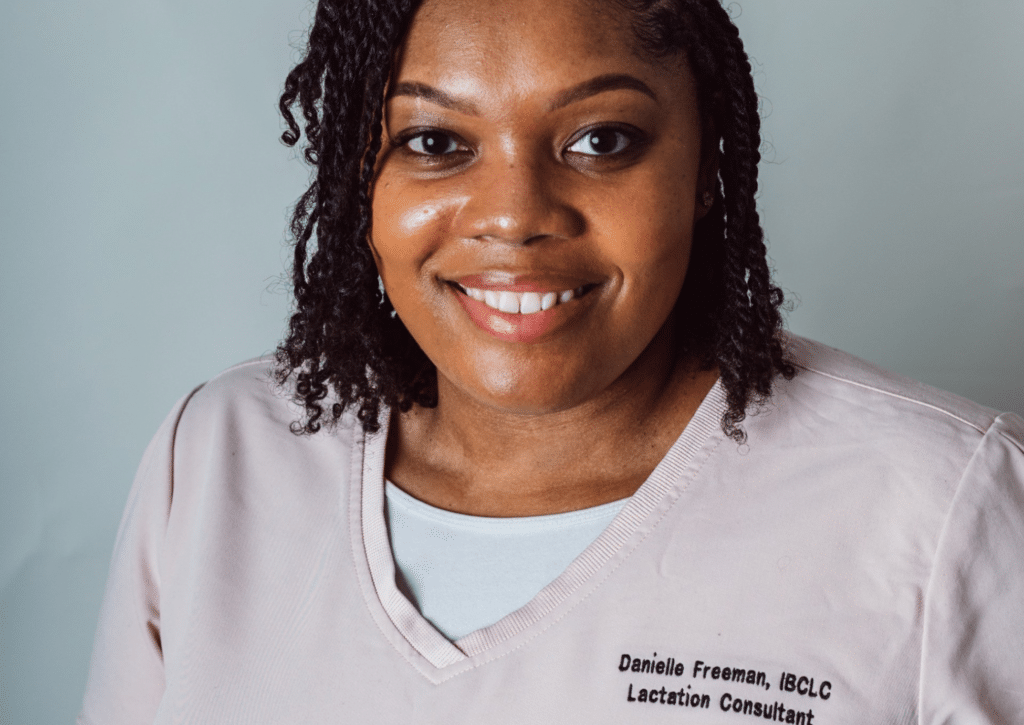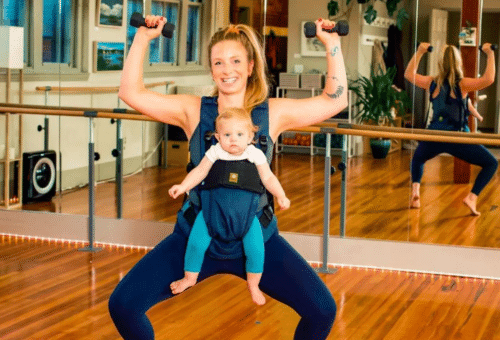
The need for more Black lactation consultants . . .
Danielle (Dani) Freeman is the only private practice Black lactation consultant in Connecticut. The only one. And she doesn’t want it to stay that way. “We have to make sure there are more options. Just me? That’s not fair for families.”
According to a 2019 report from the Academy of Lactation Policy and Practice (ALPP), only 10% of Certified Lactation Consultants (CLCs) in the U.S. are Black. Similarly, less than 2% of licensed International Board-Certified Lactation Consultants (IBCLCs – i.e., those who have completed the highest level of training) identify as Black.
Black women have lower breastfeeding rates than their white counterparts. And there are significant health disparities for women of color, some of which could be improved if breastfeeding was more prevalent. Given all that, more of us need to join Dani on her mission to diversify the lactation field.
There are enough boobs and babies to go around . . .
In addition to her private lactation practice, Dani recently started a nonprofit Paving the Way: Diversity in Lactation, Inc.. Her mission? To help recruit and train women of color interested in becoming lactation consultants. She is working hard to find mentorship placements for the women in her program so they can fulfill the required clinical training hours under the supervision of an IBCLC.
“This is the only way we are going to increase access to culturally relevant lactation services. We have to get our aspiring group of diverse women placed in mentorships at local hospitals and clinics. It seems like some people might be worried about growing the field and encroaching on their territories. But let me tell you, there are enough boobs and babies to go around!”
A “happy accident” – unexpectedly finding her passion . . .
Dani fell into the lactation field. She has three children, ages 19, 15 and 6 years old. She nursed her first two for four years each. She knew this was right for her and her babies. And she sees the health benefits for them today. Her youngest child was more complicated.
She breastfed for 8 months but then her daughter stopped latching. And that was when Dani reached out to a WIC (Special Supplementation Nutrition Program for Women, Infants, and Children) lactation counselor. The consultant first helped her with her breastfeeding challenge. Later recruiting her to become a peer counselor through the WIC program. Dani’s response was, “I think I’m interested, but what is this exactly?” she laughs.
Dani first became a peer lactation counselor and then went on to become IBCLC trained at Yale New Haven. After working with WIC for three years, she decided to open her own practice. She wanted to provide in-home services and focus on the population who might get the most benefit from working with her, black mothers.
When we know better, we do better . . .
Dani received some funding to subsidize her service to lower resourced families. She knows that there are long standing structural and cultural challenges for black families that create additional barriers to breastfeeding. She also knows that this is a population of mothers and babies who experience disproportionate rates of many of the medical issues that breastfeeding significantly reduces, including breast cancer, ovarian cancer, diabetes, and hypertension in women and certain cancers, diabetes, and obesity in children.
Dani explains, “I have both a lot of varied personal experience breastfeeding and a lot of knowledge on the subject. I meet moms where they are with no judgment. If they want to supplement with formula, if they aren’t comfortable latching and just want to pump and bottle feed, then I help them. But I also want to be sure they have the facts about breastfeeding. That they really know the benefits. And that other people who are influencing their decisions, like grandmas and husbands, know the facts too. When we know better, we do better.”
Dani said she encourages moms to bring other people into the appointments. “Sometimes grandma is resistant to this new way of thinking, and I have to gently say, “This is this your daughter’s time. This is her baby. And we know different things now.”
Prioritizing optimal feeding not overfeeding . . .
One thing Dani specifically tries to address is the common practice of overfeeding by adding cereal to bottles. This is a feeding practice that has been passed down through generations and moms like it because it really fills the baby up and, “knocks them out for the night.” But overfeeding babies can lead to a lifetime of weight problems and so Dani works hard to show moms that their babies don’t benefit from this and can be harmed instead.
When moms need a short-term supplement to support breastfeeding, Dani always shares the option of donor milk from an accredited nonprofit milk bank such as Mothers Milk Bank Northeast with them. And when moms have an oversupply of milk, she is sure to let them know the incredible gift they can provide to families who have a medically fragile baby and who requires safe, pasteurized human donor milk so they can be protected from potentially fatal complications.
Right now, Dani has a cohort of diverse aspiring lactation consultants who want to be serving the families who need them the most. Families who historically have not had people with the same backgrounds supporting them on their early parenting and lactation journey. She can’t do it alone. If you have any ideas of health clinics or hospitals who would be willing to provide IBCLC mentorship hours to help ensure that every parent gets the support they need, please reach out: news@milkbankne.org.










